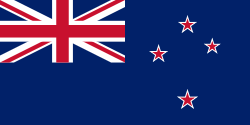| New Zealand at the 1984 Winter Paralympics | |
|---|---|
 | |
| IPC code | NZL |
| NPC | Paralympics New Zealand |
| Website | paralympics |
| in Vancouver | |
| Competitors | 8 in 1 sport |
| Medals Ranked 11th |
|
| Winter Paralympics appearances (overview) | |
New Zealand competed in the 1984 Winter Paralympics in Innsbruck, Austria. The country was represented by eight athletes (two women and six men), all in alpine skiing. It was the first time New Zealanders won medals at the Winter Paralympic Games. It was also the first time the country fielded female athletes in the Winter Paralympics. [1]